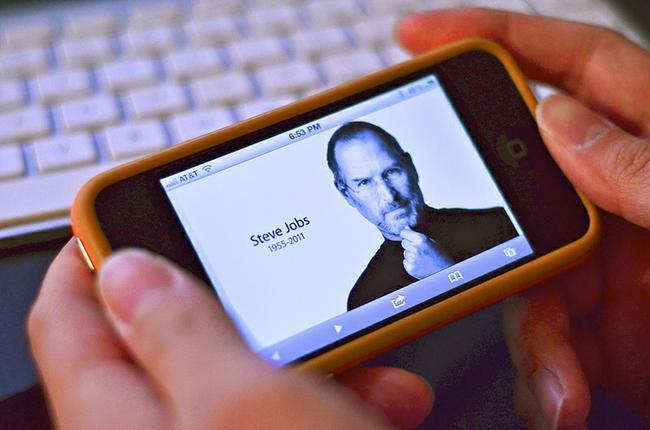Known for his trademark look of jeans paired with a black turtleneck, Steven P. Jobs, the visionary co-founder of Apple Inc., died Oct. 5, 2011 at the age of 56.
Apple announced Jobs’ death Wednesday evening. Family, friends and worldwide Apple fans are mourning his death.
“I have always said that if there ever came a day when I could no longer meet my duties and expectations as Apple’s CEO, I would be the first to let you know. Unfortunately, that day has come,” Jobs said in a letter released by Apple.
And many in the MU community have called that day and now the day of Jobs’ death a loss.
“It’s a huge loss for the world,” MU strategic communications associate professor Margaret Duffy said in an email. “I was very sad to lose a person whose imagination and aesthetic changed our relationship with technology.”
Many believe Apple led the use of personal technology, helped create the era of personal computers and then led the transformation of the music industry and mobile communications.
“The world is immeasurably better because of Steve,” Apple released in a statement. “Apple has lost a visionary and creative genius, and the world has lost an amazing human being.”
“While Jobs was a college dropout, he systematically investigated art, science, religion, music and literature,” Duffy said. “These are the crucial elements of the liberal arts education our students get at MU. You can’t be a great technologist without having these attributes of a Renaissance person.”
In 1976, Jobs and Stephen Wozniak used their own money to start Apple. They created the Apple I computer the same year, according to USA Today.
The first Macintosh computer was introduced in January 1984 during the Super Bowl by a 60-second commercial.
“As someone in advertising we always reference the iconic 1984 super bowl ad,” MU strategic communications assistant professor Stephanie Padgett in an email. “Apple was the first company to make a huge splash with that event and the creative is flawless.”
Some believe Jobs’ success originated from his focus on making products that were easy for consumes to use.
“He made technology beautiful, simple, with a dash of whimsy and so, so functional,” said Jane Stevens, former World Company Media Strategies Director and former RJI fellow, in an email. “He injected a gorgeous sense of design into computers and phones and music-listening devices when competitors seemed to have had little sense of design or care about how people used them, or had difficulty using them. He made technology fun! Apple was all about what you could DO with the technology, not just about the technology itself.”
Jobs since introduced the iPhone and the iPad. His fortune was estimated by Forbes magazine in 2011 at $7 billion.
“It must be unbearable for his wife and children to lose him,” Stevens said. “Second, for all of us, who lost a most remarkable man who had more wonderful things to create for the world. He was an incredible inspiration to so many, and created technology that people could use to inspire themselves and others.”
MU freshman Robbie Lawson said that he was sad, but not shocked, to hear of Jobs’ death.
“I think Apple is a great company and it really seems like they know how to do things,” Lawson said. “I feel like they have been able to avoid problems that other companies have run into.”
MU freshman Haley Ellerman ironically found out about Jobs’ death on her Mac.
Duffy said she was very sad to lose a person who influenced technology through imagination and that it was a huge loss for the world.
“Remembering that I’ll be dead soon is the most important tool I’ve ever encountered to help me make the big choices in life,” Steve Jobs said in his Stanford commencement speech in 2005. “Because almost everything — all external expectations, all pride, all fear of embarrassment or failure – these things just fall away in the face of death, leaving only what is truly important.”
Apple has invited “thoughts, memories and condolences” at [email protected].








